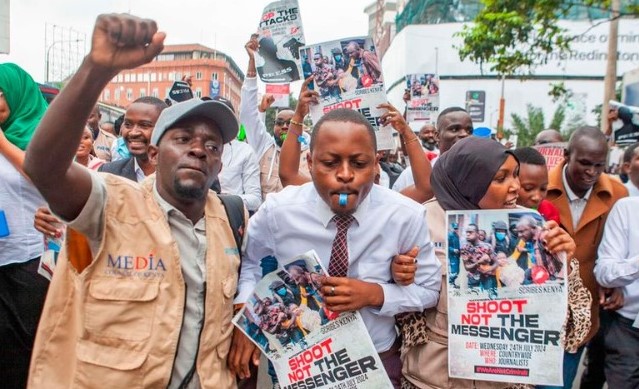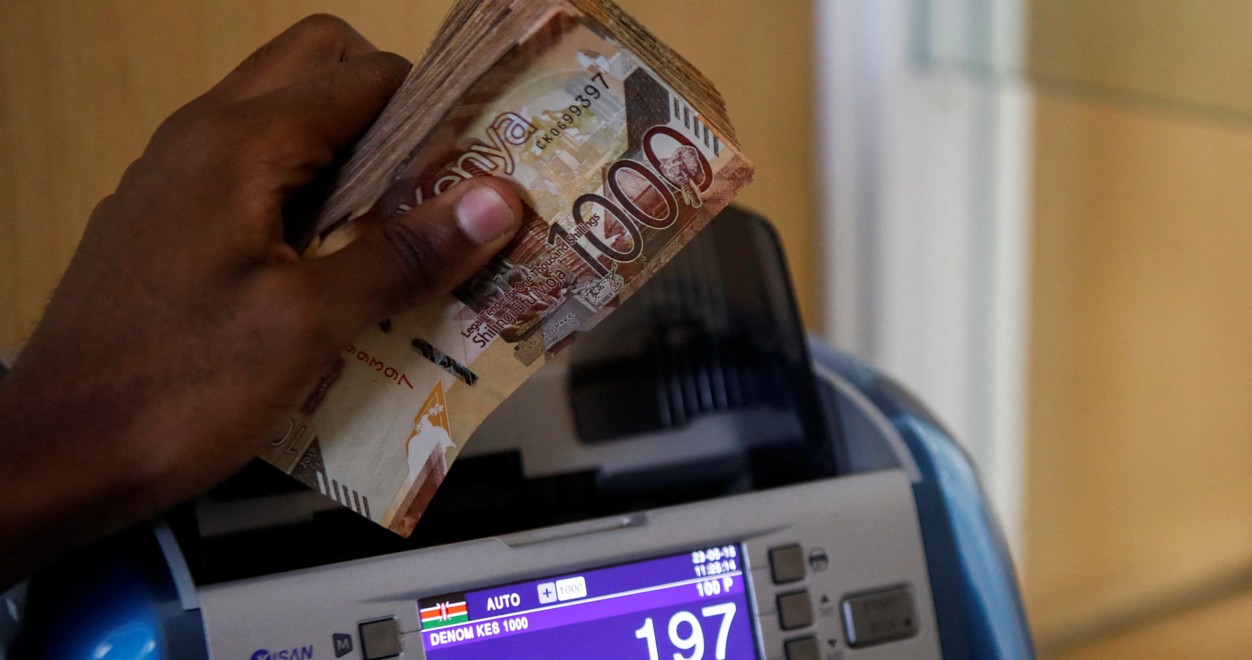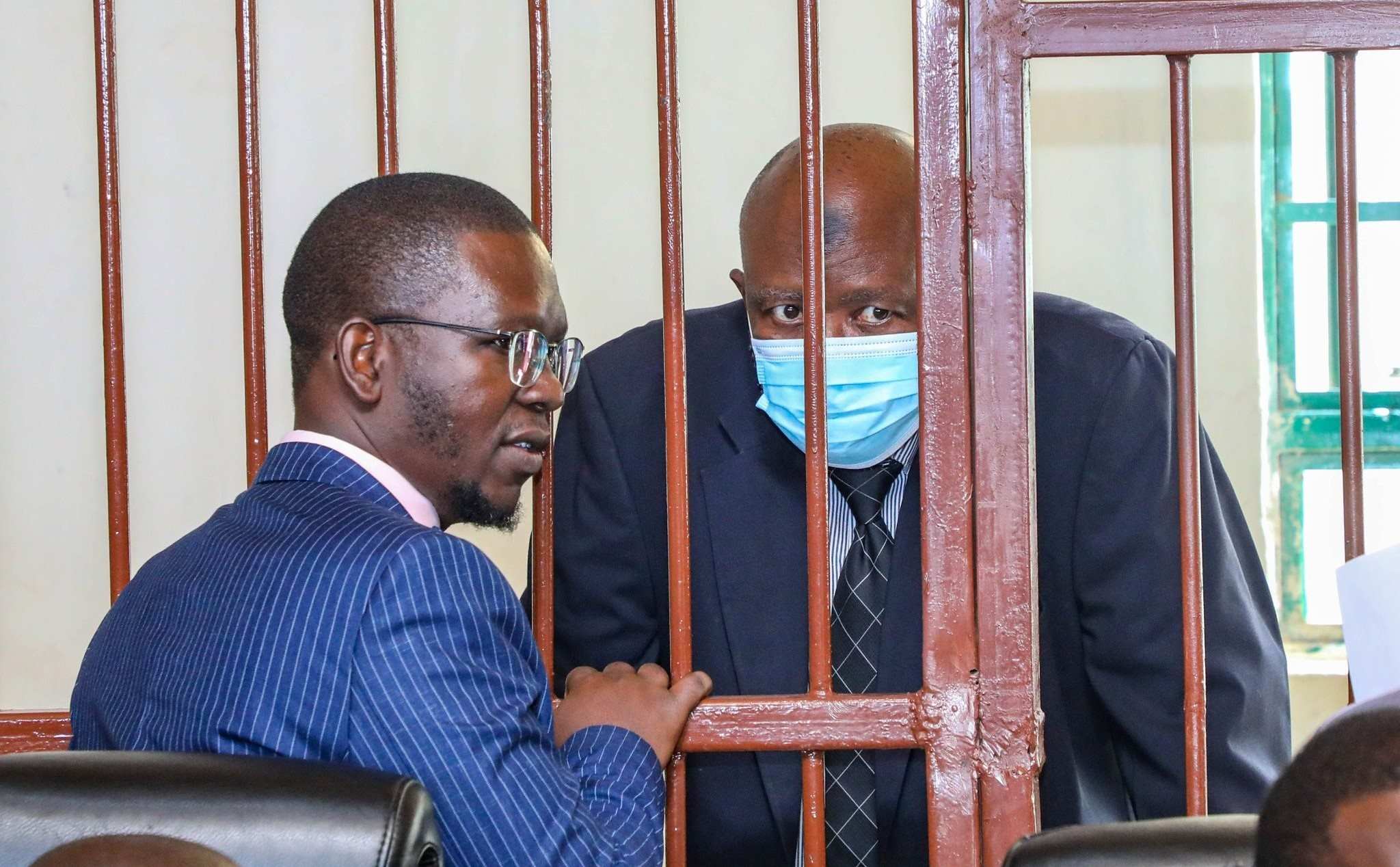No freedom to celebrate: On World Press Freedom Day, Kenya mourns a silenced press

President Ruto's administration has not only failed to uphold press freedom but has also failed to lead with transparency, accountability, and respect for democratic values.
As the world marks World Press Freedom Day on May 3, there is little to celebrate here in Kenya. This day is meant to remind governments of their commitment to uphold press freedom, reflect on ethical journalism, and honour journalists who risk and sometimes lose their lives in pursuit of the truth.
But today, instead of celebrating, we are demanding the release of four filmmakers – Chris Wamae, Nicholas Gichuki, Brian Adagala, and Mark Karubiu – who were arrested following the release of the explosive BBC Africa Eye documentary, Blood Parliament. Their only "crime" was exposing the uncomfortable truth: that uniformed officers killed young Kenyans during last year’s Gen Z protests.
More To Read
- UN calls for justice as attacks on journalists go unpunished amid growing AI-driven online abuse
- Court summons DCI officers over spyware found on BBC filmmakers' gadgets
- ‘Blood Parliament’ filmmakers allege spyware was planted on their phones while in custody
- Deputy Speaker Gladys Shollei lauds committees as Parliament’s ‘engine room’
- BBC responds to Murkomen’s allegations over Mai Mahiu documentary
- DPP orders DCI to probe Maai Mahiu child sex trafficking claims within 7 days
The four have been released after much public fury.
Following the documentary’s premiere on YouTube, the same government that has never taken responsibility for these deaths moved swiftly to suppress it.
A scheduled public screening at Unseen Nairobi cinema, accompanied by a panel discussion, was blocked.
"A screening of BBC Africa Eye’s Blood Parliament in Kenya was cancelled due to pressure from the authorities," the BBC confirmed.
This kind of repression is becoming the norm under President William Ruto’s administration.
Instead of embracing media as a tool for accountability and reform, his government has chosen to intimidate, harass, and silence the press. Journalists covering anti-government protests were teargassed, shot at, and arbitrarily arrested.
Kitui-based blogger Emmanuel Maleve was detained at Muthaiga Police Station for linking a local MP to corruption. Photojournalist Justine Ondieki was detained in a GSU vehicle near Gikomba, injured in the process, and had his equipment damaged, all for doing his job.
And it doesn’t stop there.
Recently, the government threatened to revoke the Standard Group’s broadcasting licences, citing non-payment of fees. But the truth is clearer than ever: the real motive was the media house’s hard-hitting headlines that dared to hold power accountable.
This regime is dragging us back to the dark Moi era, when media censorship was the order of the day and dissent was silenced.
Journalists are not criminals; we are patriots doing our jobs, and we deserve protection just like any other Kenyan.
These are just a few examples of a broader pattern.
President Ruto's administration has not only failed to uphold press freedom but has also failed to lead with transparency, accountability, and respect for democratic values.
On this World Press Freedom Day, Kenya should be reflecting, not celebrating. And more importantly, we should be demanding justice for those who risk everything to bring us the truth.
Top Stories Today


















































